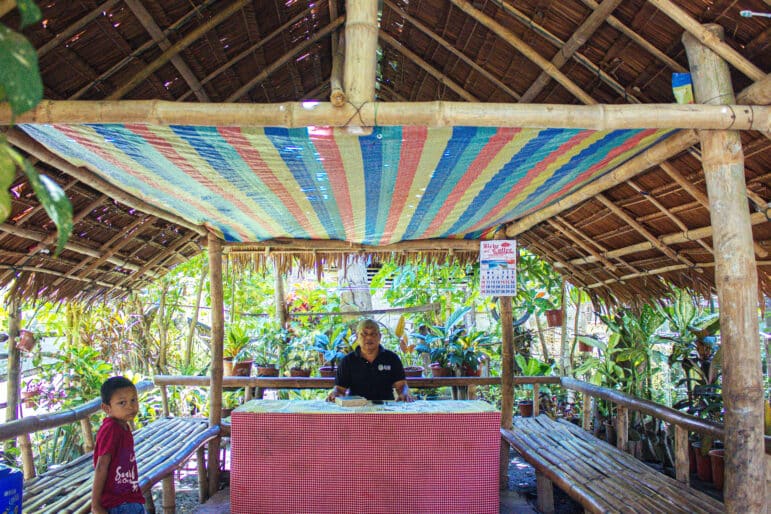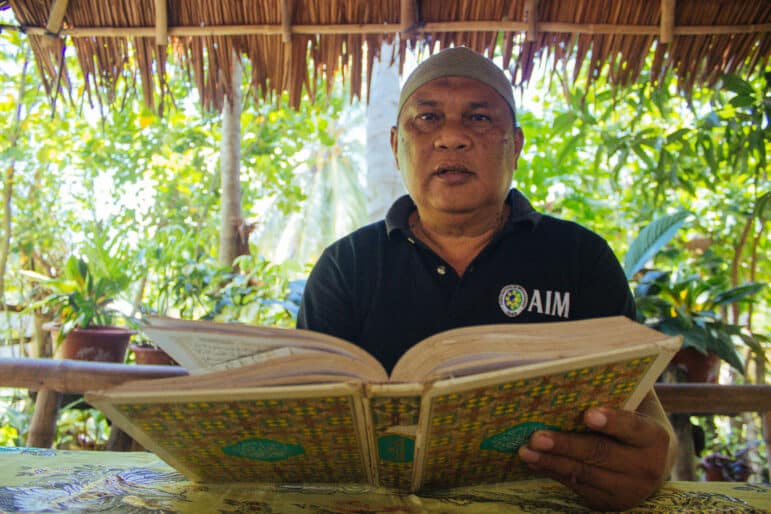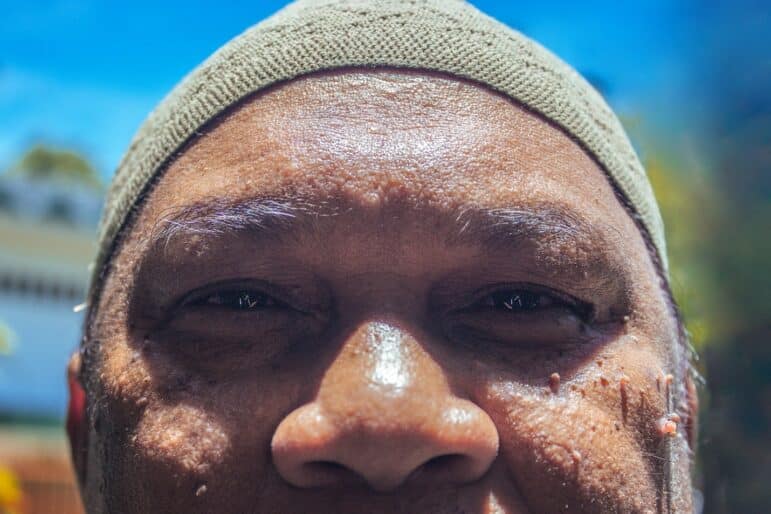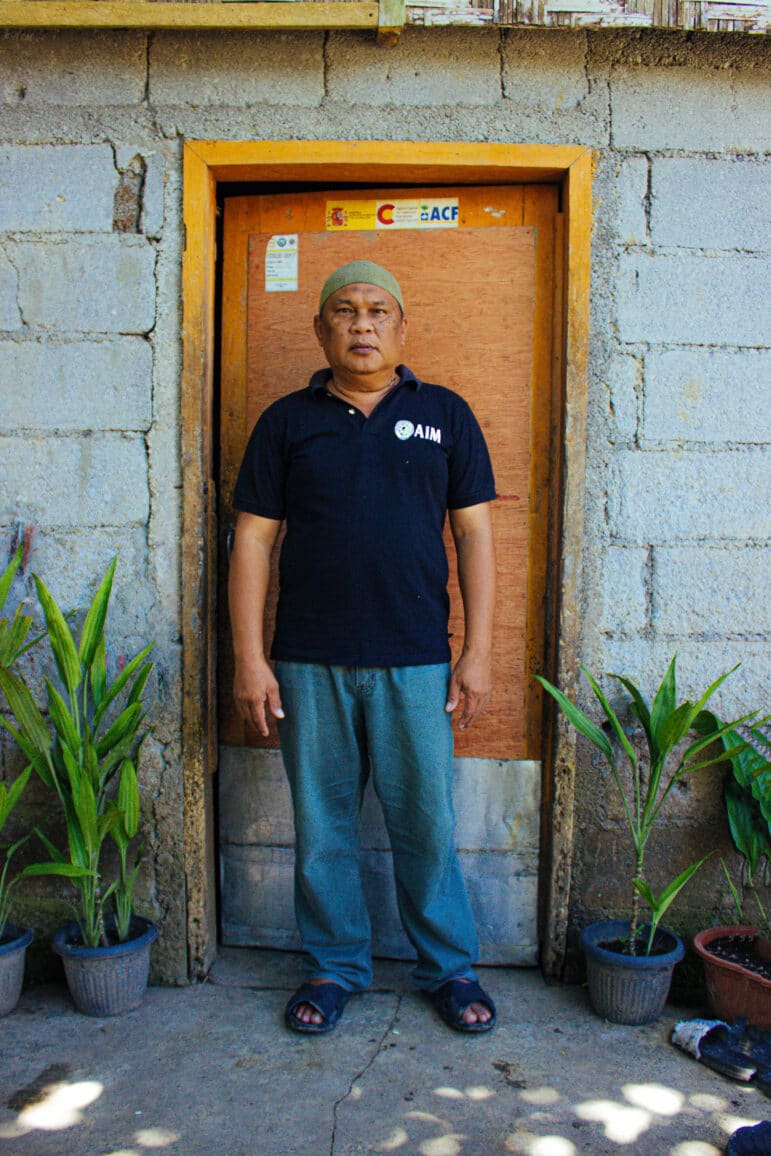"Re-echoing" NP's Teachings: Hadji Gapor's Story of Peace
A Filipino Imam Goes Beyond His Duties to Cultivate Peace Within His Community
By Denise Rafaeli Cadorniga
Born in Conflict, Educated in Peace
Hadji Gapor was born in 1969, one year after the Jabidah Massacre. For many civilians, the massacre marks a key moment in history of the Bangsamoro region of the Philippines—a moment that ignited the call for independence.
“I was born into conflict.”
“Kinagisnan ko na ang gulo.”
Hadji was raised in a small village called Barangay Lagundi in Pikit, Cotabato in the Philippines.
"I can still recall the hot, sunny day from my childhood, when my family was forced to flee our homes," shares Hadji, as he begins reflecting on the long-standing history of conflict in Bangsamoro. He will never forget how his mother explains that day.
"She always said 'the only thing I was able to bring was a small pot of barely cooked rice.'”
“Tanging nadala ko lang yung kaldero na maliit na may kanin na hindi pa halos luto.”
Can you imagine suddenly having to flee your home? Although Hadji was young at the time, he can still vividly recall the trauma the conflict inflicted on him and his family.
"It was an intense experience—being chased by armed men."
“Matinding experience… yung karanasan namin na hinahabol kami ng mga mamamatay tao.”
The Bangsamoro conflict also affected Hadji's and his peers' education. Schools were equipped with military officers. Hadji and his friends bravely persevered through their studies. They offered support to one another and reminded each other that, "education is necessary". “Kasi kailangan talaga ng education.”
Hadji's keen focus on his studies led him to become a well-respected Imam and trusted in his community. He enjoys this role very much. But, he found himself interested in expanding his social impact even more.
Cultivating Peace
Hadji first met the NP team when they came to his village because of reports of escalating clan tension. While there, the NP team de-escalated the conflict using nonviolence. This was the kind of social impact Hadji was looking to have—he was eager to participate in NP trainings and seminars to build on his knowledge of peacebuilding.
Hadji was able to expand his knowledge of human rights through his trainings with NP. One of his goals is to teach lessons from NP's trainings to civilians in his community. He refers to this as, "re-echoing," and believes that re-echoing such learnings to civilians is crucial to maintaining peace and safety of the community.
"They don’t know about their rights, and this is why they are abused. If they know about their rights, they can uphold them. They can’t defend themselves because they think they have no rights.”

Out of all the trainings NP has offered Hadji so far, he has found the material from Early Warning Early Response to be a rather valuable resource for his community. Through this system, civilians are alerted at the early signs of conflict and are assisted in the evacuation process. As a result, more civilians are sheltered from danger and conflict and more civilian lives are protected.
You also made it possible for Hadji to attend a "Training of Trainers" on Unarmed Civilian Protection (UCP). Now, Hadji supports civilians in times of adversity, and can train others himself—continuing to re-echo peace.
In this work of peacebuilding, Hadji recently told us how essential development is—both internal and external: "there's] development that comes in the form of infrastructure and also sources of livelihood, then, there's personal development that focuses on promoting a culture of peace." Hadji wisely suggests that both forms are necessary to cultivate peace.
With your continued support, more community members like Hadji will have access to these trainings. More community members will re-echo lessons of human rights, how to recognize and respond to early signs of conflict, and strengthen their peacebuilding skills.
***
Hadji Gapor is one of the training participants of the ATTAIN Project implemented by Nonviolent Peaceforce through funding from the EU and supporters like you. ATTAIN (Accompanying the Transition, Transformation of Conflict, and Advocacy on Social Cohesion) in the normalization of Bangsamoro is being implemented in BARMM, Regions 9, 10 and 12 to complement the civilian protection component of confidence-building and security measures under the normalization and opportunity to broaden the practice of unarmed strategies in conflict transformation and social cohesion to a wider geographical scope in Mindanao.



